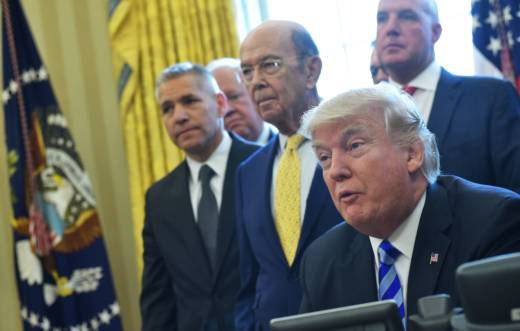Updated at 11 a.m. ET Friday
The U.S. State Department has signed and issued a presidential permit to construct the Keystone XL pipeline. That reverses former President Barack Obama's 2015 decision to reject the controversial pipeline.
Pipeline company TransCanada says that in conjunction with the Trump administration signing off on its pipeline, it will drop a claim for more than $15 billion that it filed under the North American Free Trade Agreement. The company also says it will drop a lawsuit that claimed Obama's decision was unconstitutional.
"We greatly appreciate President Trump's administration for reviewing and approving this important initiative, and we look forward to working with them as we continue to invest in and strengthen North America's energy infrastructure," said Russ Girling, TransCanada president and CEO.
Four days after Trump was sworn into office, he invited TransCanada to resubmit its application for the pipeline. The president also directed the State Department to determine within 60 days whether the pipeline is in the national interest.

9(MDAxOTAwOTE4MDEyMTkxMDAzNjczZDljZA004))